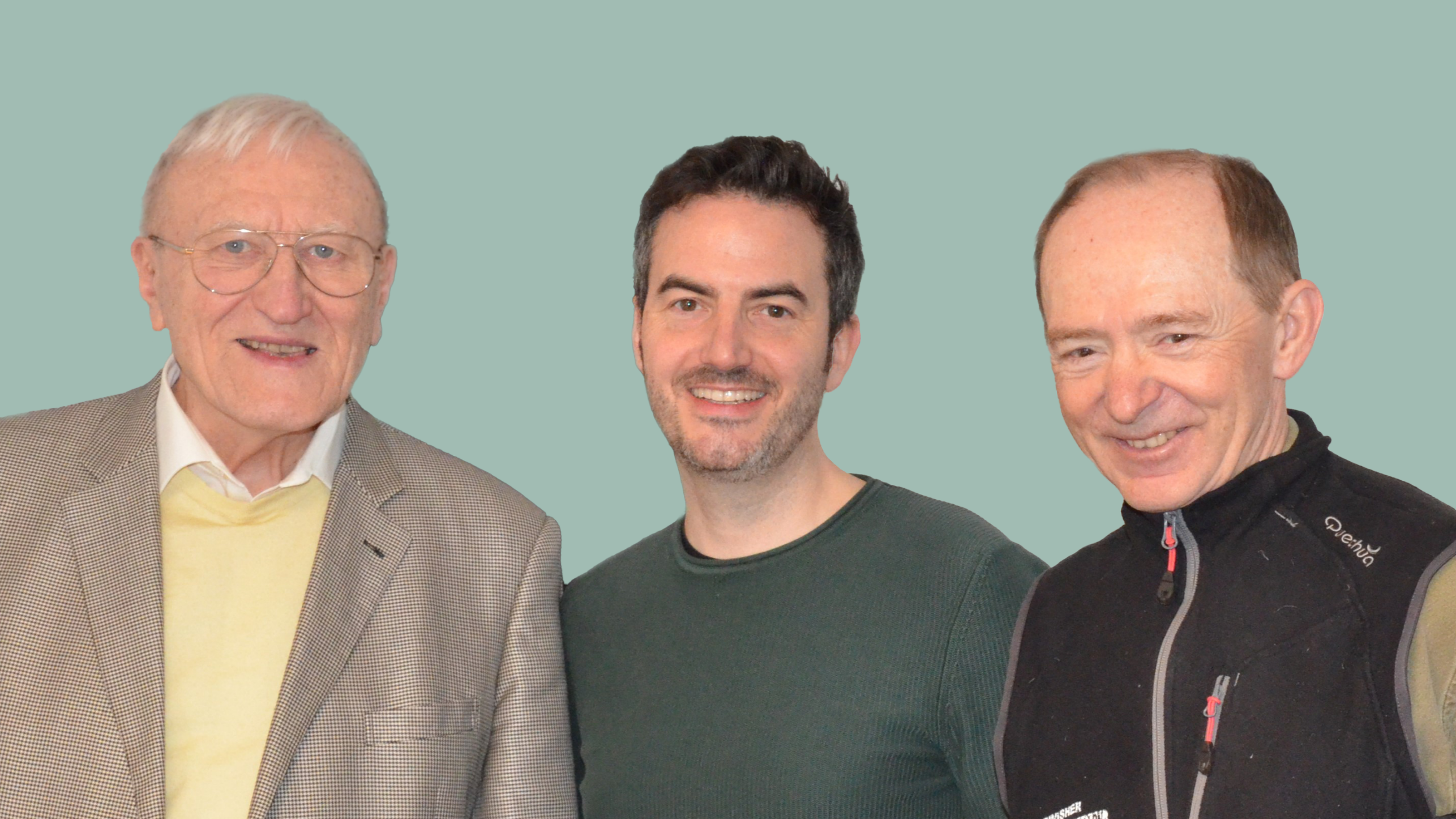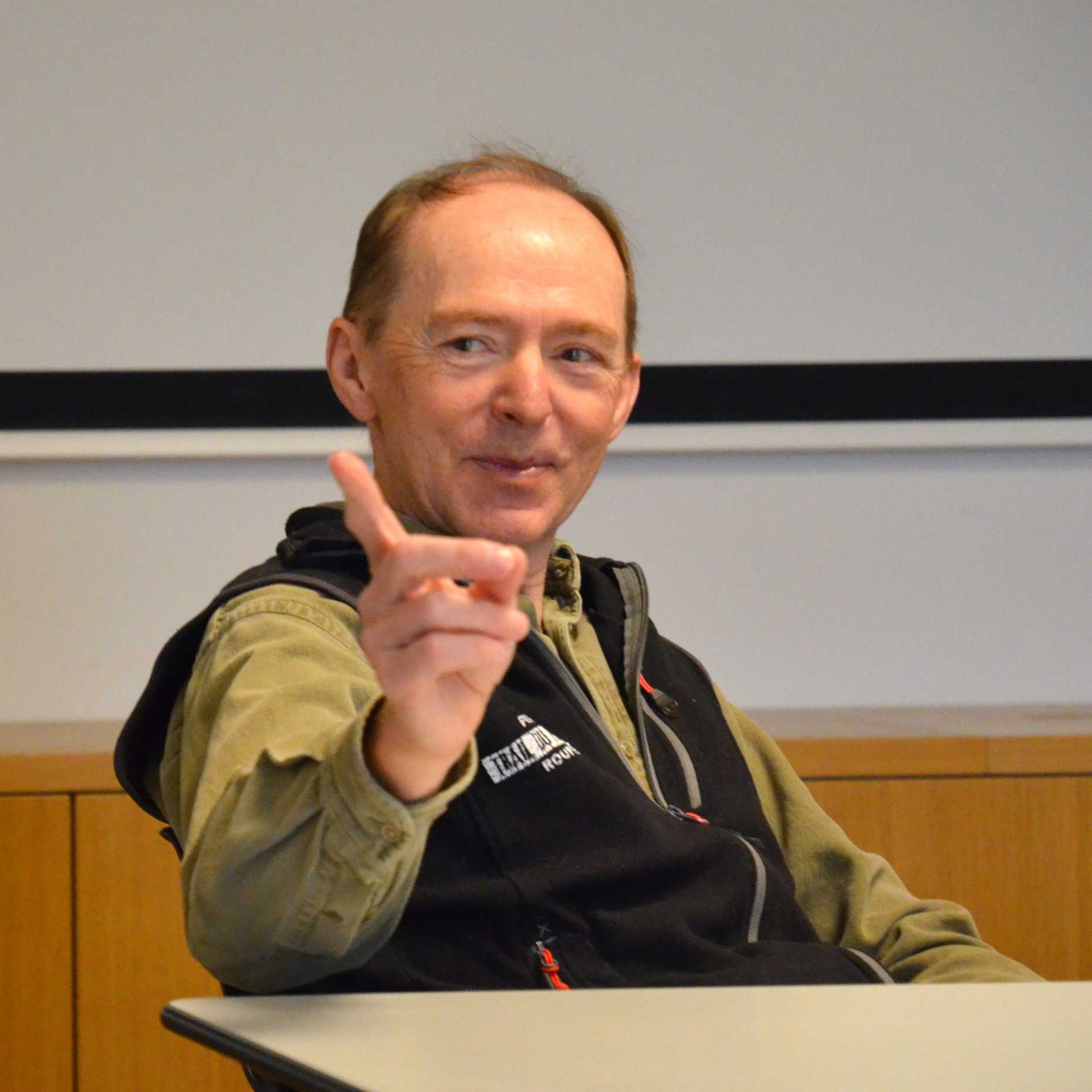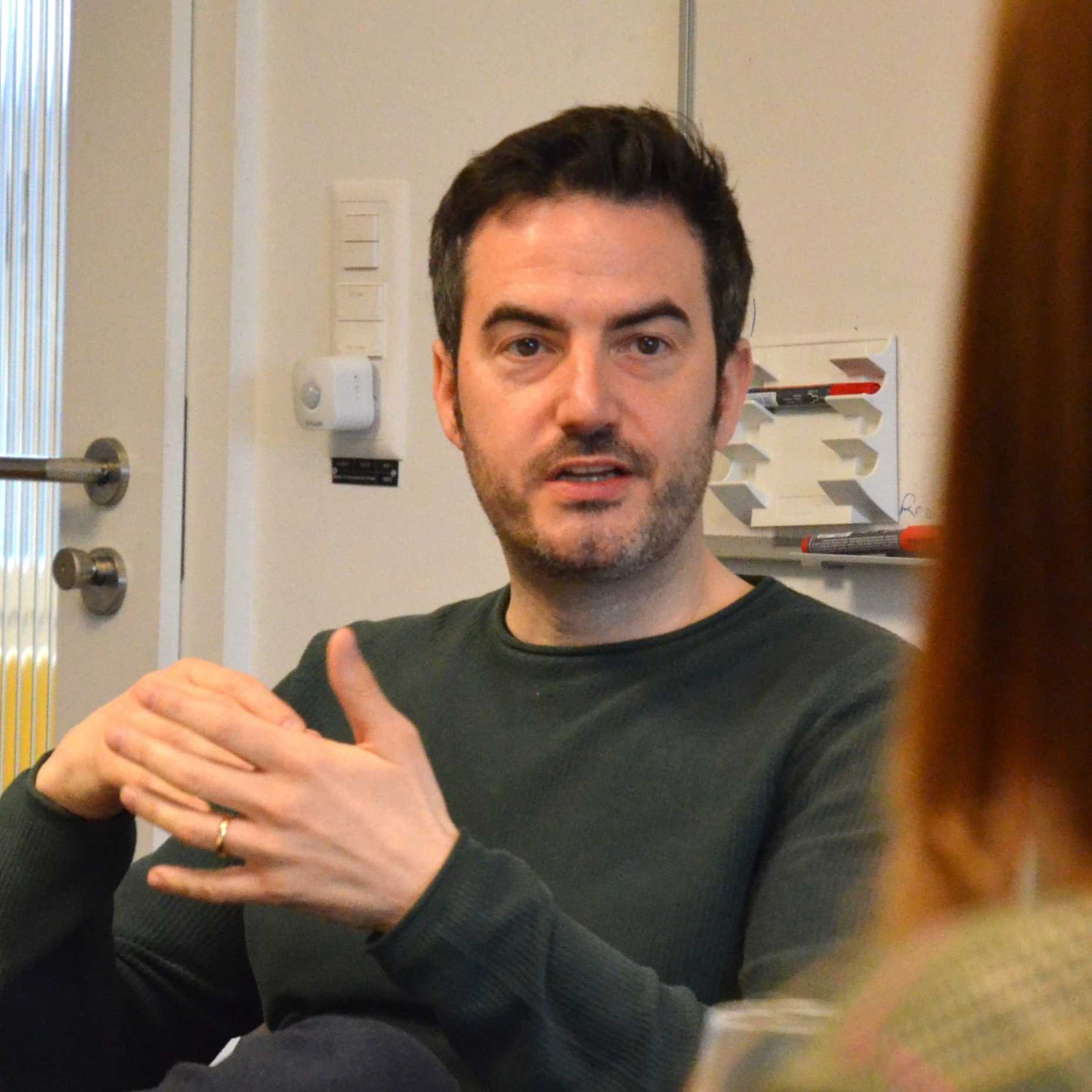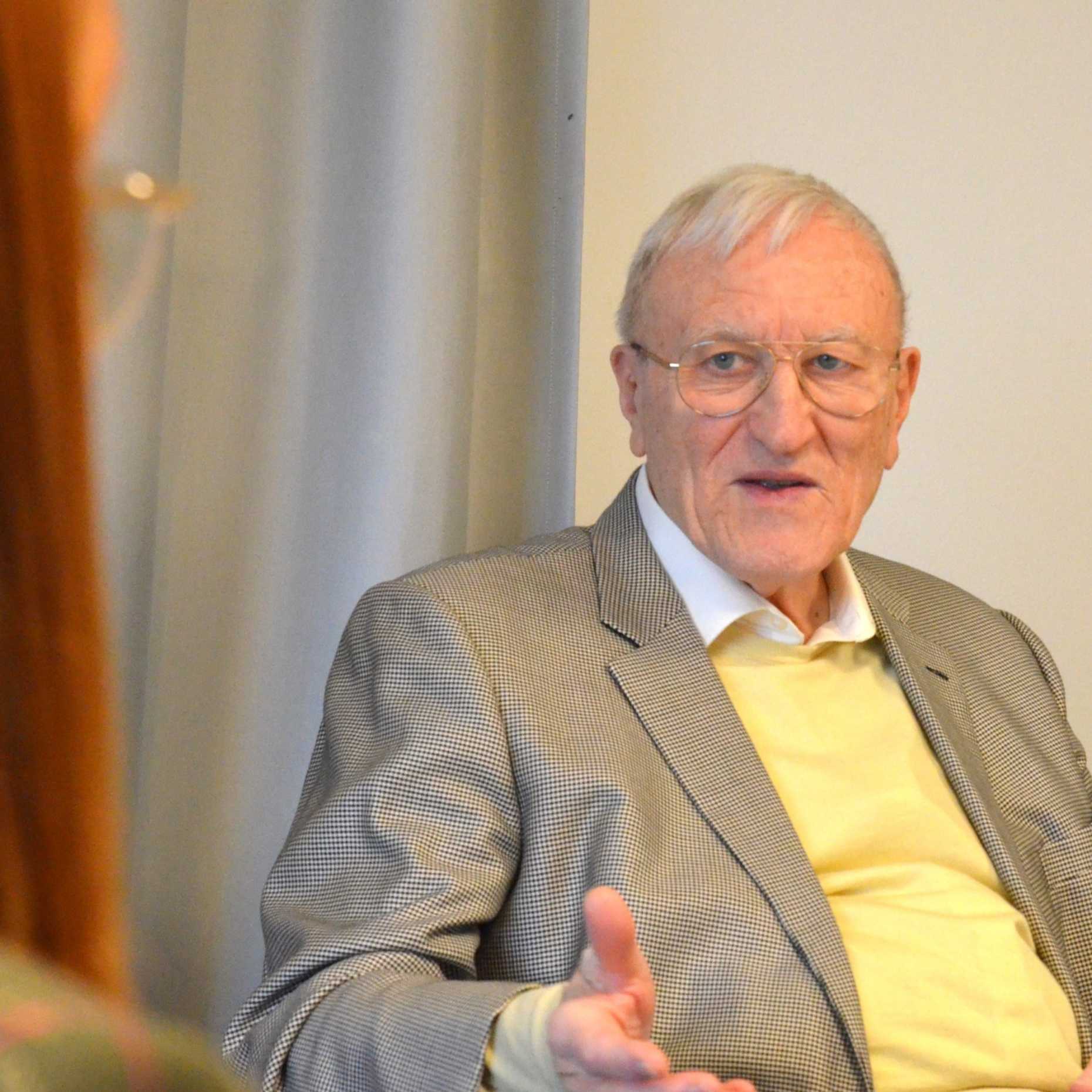Computer science as a core subject: three generations, one goal
Last year, it was decided that computer science would become a core subject in Swiss baccalaureate schools from the 2024/25 school year onwards. In this conversation, three generations of professors who have committed themselves to this cause look at the past and future of the school subject of computer science.

How did the announcement of the decision to finally make computer science a core subject in Swiss baccalaureate schools affect you?
Dennis Komm: It had been clear for some time that there were very positive signs; we weren’t completely surprised. Still, I remember that we were very pleased when the press release was published. It was nice to see the decision in black and white.
Walter Gander: I was just thinking: finally, after 40 years, the time has come. Just think about it – it took 40 years, not 4 years.
Juraj Hromkovič: These 40 years in the case of Walter Gander, and the 20 years that I’ve spent on this cause, show that it has been a learning process for society and politics. It is, after all, an evolution, not a revolution. Making computer science a core subject is one of many milestones that the Swiss school system has reached. Computer science was initially a minor course and then a compulsory subject in baccalaureate schools. In addition, the Media and Computer Science module was introduced at primary and lower secondary level.
Why is it important to teach computer science as a school subject?
Gander: Computer science should be one of the core subjects, because you can only understand today’s world if you have a basic understanding of computer science. That’s why it is so important that computer science is finally taught in schools from nursery school to baccalaureate.
Hromkovič: The aim of Lehrplan 21 is to enable pupils to understand and shape their own world. A second objective is to prepare them for the careers of the future. We don’t know what these will look like, but all professions will have some degree of automation. You need to understand these automation processes to gain a high level of expertise in your future career.

“We don’t know how the careers of the future will look like, but all professions will have some degree of automation. You need to understand these automation processes to gain a high level of expertise in your future career.”Prof. em. Juraj Hromkovič
Mr Komm, what do pupils learn in computer science classes?
Komm: Programming is an essential part, yet at the same time, it’s only one facet of computer science teaching. Another important aspect is computational thinking. This involves developing problem-solving skills and, in particular, building tools in computer science that enable us to solve problems systematically. Pupils should not only be able to solve individual problems themselves, but should also be able to understand how the problem is solved well enough that they can delegate the process to a computer. Many of the relevant computer science concepts can be taught without even touching a computer. You can playfully incorporate this into the classroom early on.
What will change at baccalaureate schools in the coming school year as a result?
Hromkovič: The difference is that there is now a minimum number of lessons for all cantons. There is also a curriculum now which sets out everything that needs to be covered in the core subject of computer science. The subject has also become relevant for baccalaureate exams, whereas until now, it hadn’t been assessed at all in some cantons.
Komm: Pupils will also be able to choose a specialised course in computer science if one is offered. Our task now is to prepare teachers and schools in the best possible way and to enable them to offer computer science as a specialised subject.
What do you do at ETH Zurich to train computer science teachers?
Komm: ETH offers a computer science teaching diploma, and all three of us are involved in the Switzerland-wide GymInf programme, which is a kind of fast-track programme for existing teachers who want to add computer science to their teaching repertoire. We also offer various on-the-job training programmes and develop comprehensive teaching materials.
Hromkovič: The training of baccalaureate school teachers in computer science has a tradition of more than 25 years at ETH Zurich. This shows that even way before computer science was taught as a subject in schools, we always believed that the day would eventually come.
Komm: We are committed to teaching at all school levels, and increasingly in cooperation with teacher training colleges. Juraj Hromkovič went to Swiss primary schools 20 years ago and taught computer science. Later on, I joined in as well.
Mr Gander, unlike your two colleagues, during your time at ETH Zurich, you were not responsible for computer science teaching, but rather for scientific computing. What was your motivation to support the teaching of computer science in schools?
Gander: My interest in teaching computer science really began in the 1970s, when I taught numerical mathematics as a private lecturer at ETH. That’s when I realised that the students lacked an understanding of the Apple II computers they were supposed to use at the time. So I taught them the Pascal programming language before I started the actual mathematical exercises. At the end of the course, everyone was interested and passionate about programming. It was nice to witness their learning progress and to see that I could make a difference. In the 1980s, I wrote a book for baccalaureate school classes and gave lectures at colloquia for mathematics teachers.

“I can hardly imagine a more important vocation and subject on which my time would be better spent. Ultimately, it’s about the extent to which our children become mature citizens who can shape the world in which they live.”Prof. Dennis Komm
Mr Hromkovič and Mr Komm, how did you get involved in teaching computer science?
Hromkovič: Early on in my academic career, I didn’t get involved with teaching. It wasn’t until my daughters went to school that I started thinking about what good maths and computer science classes could look like and implemented some of the first projects in that area. When I came to ETH, I had the task of training baccalaureate school teachers. I’m from Eastern Europe. There, computer science training has a very different tradition. At that time, we already had a recognised, independent subject at baccalaureate schools – in other words, quite different from the situation in Switzerland. I said to myself that if I really wanted to achieve something, I could go beyond just baccalaureate schools and implement the subject across the board for all school levels. This led to the founding of the Centre for Computer Science Education. Programming can frustrate pupils to no end, but it can also get them really excited. What matters is not that you do it, but how you do it. I quickly understood the influence I could exert in all sorts of ways, and that I could contribute to society through computer science education.
Komm: I was interested at an early age in how people learn, which is why I studied psychology as a minor with a focus on “human attention and memory”. In terms of the motivation for my work today, I feel the same as Juraj Hromkovič. I can hardly imagine a more important vocation and subject on which my time would be better spent. Ultimately, it’s about the extent to which our children become mature citizens who can shape the world in which they live. And they can only do that if they understand the basics of computer science. It is a great privilege for me to be able to play even a small part in instilling this knowledge and curiosity during their school careers.
Mr Gander, together with Professor Urs Hochstrasser, then Director of the Federal Office of Education and Research, you have written a text in which you describe the 40-year history of computer science as a school subject. What setbacks did you struggle with in particular?
Gander: The biggest setback was the 1995 baccalaureate reform. At that time, computer science became information and communication technology (ICT). That meant that the lessons were only about dealing with computers, the programs running on them and the internet. This led to a shift in social opinion, and the question arose as to why people should learn to code in the first place. After all, people thought, it would be enough to use the existing programs. We collected counter-arguments and got a lot of backing from the Mathematics and Physics Teachers Association and some baccalaureate schools, but unfortunately, it didn’t help.
Komm: We can see something similar happening today: now we have generative AI and language models, so why do you still have to learn to code?
Gander: Exactly, right now, there’s another wave like that happening.
What do you say to that?
Komm: I don’t want to be seen as an anachronistic professor from the ivory tower. In my view, the latest developments in generative AI, for example, should indeed be part of the school curriculum. However, I believe that care should be taken to ensure that we don’t only teach pupils how to use these black boxes. Instead, they should learn the concepts on which they are based. Of course, there will always be a certain level of abstraction and didactic reduction – but computer science teaching should be about more than mere application.
Hromkovič: Knowledge and independent thinking is an important point here. A new technology is emerging, and you can’t decide which way to go with it if you don’t understand how it works. You can only operate it. So you’re dependent on the people who develop these technologies.
How did it come to be that from 2007 onwards, we moved away from this kind of application-oriented computer use?
Gander: Industry and even universities have realised that it is not enough to be able to browse the internet and use Word and Excel. Industry wanted to produce new software, and ICT knowledge does not get you very far in training specialists, because they lack a foundation in computer science. That is why the then Federal Councillor Pascal Couchepin campaigned for the introduction of a voluntary computer science course in baccalaureate schools. However, if things are structured so that pupils can choose between physical education and computer science as a minor course, then PE is often more attractive. You go there for two hours a week and you’re done, while computer science is a lot more intensive.
Hromkovič: Yes, but the introduction of the minor course was at least a first step, and such first steps are always important in order to be able to take further steps later.

“At ETH Zurich, we have had several presidents and rectors who have been strongly committed to computer science in schools and have supported our cause. We can really be grateful for that.”Prof. em. Walter Gander
How do you rate the development of the subject of computer science in Switzerland compared to other countries?
Hromkovič: I think every country has written its own history and is still writing it. The process is not complete.
Gander: Switzerland gained early experience with computers and helped shape computer science, for example through the recently deceased Niklaus Wirth, who created the Pascal programming language, which is considered the world’s lingua franca for teaching programming. The fact that Switzerland, despite its pioneering role at the time, is only now introducing computer science as a core subject still surprises me.
Hromkovič: It is sad that Switzerland has lost its lead over time. But we are now in the process of rebuilding that status and becoming an example for others. There are several countries that look at what we’re doing here and want to learn from us. We are constantly being invited. On the other hand, Switzerland is also influenced by what happens in other countries.
Komm: The current status is not so bad and shouldn’t be taken for granted.
As we look to the future together, what other milestones still need to be reached?
Komm: One real milestone would be that one day my daughter comes home from primary school and says: “Dad, my teacher taught us binary search today.” If that happens, I’ll put a check mark in my agenda. I have a four-year-old daughter and a one-year-old daughter, so I have two chances of achieving this goal. Aside from that, it’s difficult to operationalise future objectives; the wish list is long. I am optimistic about the current state of computer science teaching in the curriculum from nursery school to baccalaureate. Nevertheless, I would of course like to see, for example, a further increase in the proportion of women studying computer science. Our task in the coming years will be to support teachers and schools as much as possible in developing curricula, teaching materials and tools to enable the implementation of high-quality computer science education at all levels of education.
Is there anyone you would like to thank for their commitment?
Komm: Of course, the two gentlemen next to me. We should not underestimate what they have achieved, sometimes against the odds. Thanks to their preparatory work, I am now in a fairly comfortable position with a lot of momentum. I am also extremely grateful to the Department of Computer Science and the Executive Board of ETH Zurich for their great recognition and support. I would also like to thank the teachers of Switzerland. I should know this by now, but it never ceases to amaze me what kind of personalities teach in Swiss schools. Their support and commitment have been instrumental in bringing about the changes described.
Hromkovič: True, such changes can only happen through the collective efforts of many people, from educators to professionals and industry. Such an undertaking cannot be accomplished by individuals alone. I would also like to thank the members of the Department of Computer Science and the Executive Board, who have believed in this for over 25 years and have made it possible to train computer science teachers at ETH Zurich.
Gander: I fully agree with that. At ETH, we have had several presidents and rectors who have been strongly committed to computer science in schools and have supported our cause. We can really be grateful for that.
About
Dennis Komm has been Associate Professor at ETH Zurich since 2022 and heads the Group for Algorithms and Didactics and the Centre for Computer Science Education. Prior to that, he worked as Professor of Didactics in Computer Science at the University of Teacher Education in Graubünden.
Professor Juraj Hromkovič, recently retired, was Professor of Information Technology and Education at ETH Zurich from 2004 to 2024. In order to promote the introduction of computer science as a school subject in Switzerland, he founded the Centre for Computer Science Education in 2005.
Professor Emeritus Walter Gander was Associate Professor of Computer Science at ETH Zurich from 1987 to 1991 and Full Professor of Computer Science from 1991 to 2009. During this time, he was strongly committed to the advancement of women in computer science and to establishing independent computer science lessons in schools.